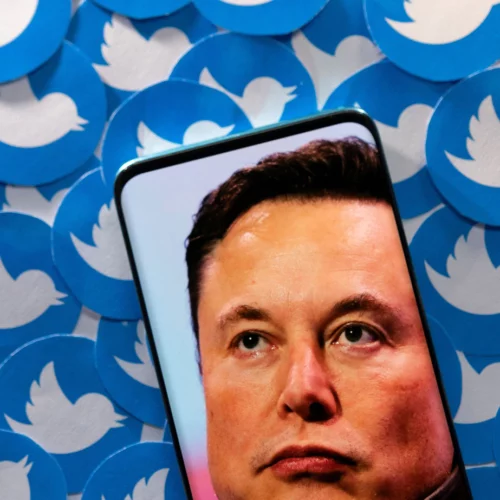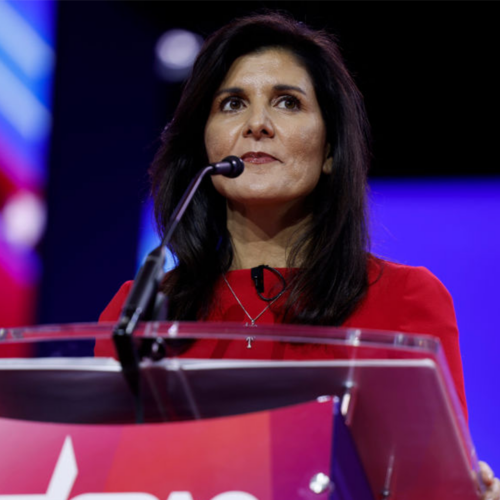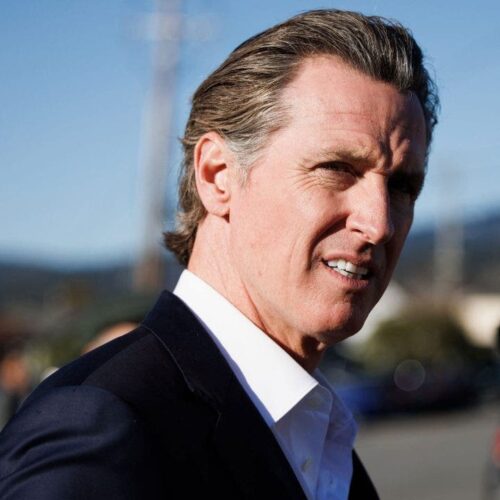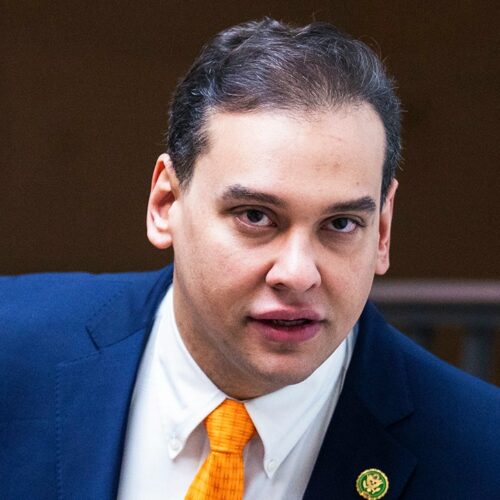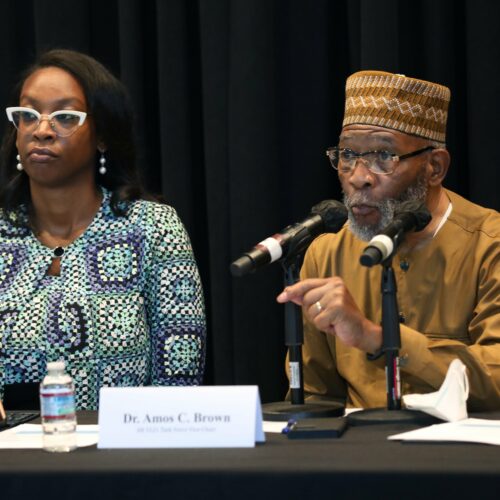SAN FRANCISCO — Weeks before Elon Musk announced he was buying Twitter, the social media company’s recently departed CEO Jack Dorsey sent him a text.
“Ok,” Musk replied to Dorsey. “What should it look like?”
The text exchange, unveiled in court documents made public Thursday, is part of a new trove of communications from the first half of the year that help shed light on the motivations behind the world’s richest man’s decision to acquire a massive stake in Twitter, then decide to take it private for $44 billion.
When Musk announced his 9 percent stake in Twitter on April 4, followed the next day by Twitter publicly appointing him to its board, it sent shock waves through the tech world and caused rejoicing on the right, as many speculated that he would overhaul a platform that has struggled for years to find its footing. When Musk announced his surprising hostile takeover plan to take the company private weeks later, he said it was aimed at enhancing the “digital town square” and unlocking the site’s potential.
Weeks later, Musk got cold feet, and in July, he filed to back out of the deal — sending Musk and Twitter to court in Delaware. They are set to face off at trial for a week starting Oct. 17.
Behind the scenes this spring, Musk’s phone was flooded with the thoughts of key advisers, peers, celebrities, media personalities, a who’s who of Silicon Valley leaders and close confidants, according to the documents. Podcaster Joe Rogan, friend and former Tesla board member Antonio Gracias and even Florida Gov. Ron DeSantis (R) weighed in, Musk’s text messages show. So did television journalist Gayle King, German media magnate Mathias Döpfner and right-leaning tech investor Joe Lonsdale.
Some wanted in on the deal, while others offered advice on issues such as Twitter’s direction and potential hires.
“Are you going to liberate Twitter from the censorship happy mob?” Rogan texted Musk on April 4, the same day Musk’s investment in Twitter became public.
The texts outline how Musk had grown increasingly frustrated with what he saw as the encroachment on free speech by online content moderation decisions, including Twitter’s permanent ban on former president Donald Trump.
And when Musk’s seat on the board fell through, he vowed to take over Twitter and change it from within.
“Aiming to be as broadly inclusive as possible,” Musk said in a text on April 28. “Do the right thing for the vast majority of Americans.”
Musk, Rogan, DeSantis, Dorsey and Gracias did not immediately respond to requests for comment. Twitter and Lonsdale declined to comment.
Musk’s text messages — and, in some cases, the lack thereof — have become a key subject in court. Twitter attorneys allege he conducted virtually all business relating to the deal over text, but they argue that relatively few messages were turned over as evidence — and they have also identified exchanges where it appears Musk’s responses may have been deleted or withheld. The trove of texts were submitted into evidence as Twitter attorneys sought sanctions against Musk for allegedly concealing important messages.
Lawyers say Musk, at times, relied on the encrypted messaging platform Signal, where his texts were set to self-destruct, meaning his communications from critical junctures in the deal are erased and unrecoverable.
And they say the messages that were previously handed over by Musk display curious gaps. Some messages, they alleged in a court filing, are “forever lost” because of Musk’s alleged reliance on disappearing messages.
Musk’s attorneys have acknowledged in court that their search for messages relating to the deal has at times fallen short, but argue they did not conceal evidence.
In legal filings, the attorneys said they have not intentionally withheld relevant texts, and cited their “sleepless nights … working tirelessly” to meet an expedited timeline as a reason for possible lapses in quality control.
They said the necessary messages have been turned over and argued Musk hasn’t destroyed evidence. “Defendants have produced all relevant text messages; they are not hiding anything,” an attorney for Musk said in a recent letter to the court. Legal experts said Musk’s messages could lead to scrutiny in the case.
“The thing about texts and emails is that people tend to be really casual and perhaps say things impulsively that are sloppy and not carefully worded,” said Ann M. Lipton, a Tulane University law professor who has been closely following the dispute.
That could pose a problem for Musk, she said, because it could hint at motivations other than those he had expressed for backing out of the deal.
“This is how people talk now,” she said. “Except that when people talk that way, they tend to forget that someone else can see this.”
The text messages unveil a concerted effort among confidants of Musk — most critically Dorsey — to convince him that Twitter needed him and that online discourse would benefit from his involvement at the social media company. Musk is a power user of the platform, tweeting on topics of interest sometimes multiple times daily, and using the platform to announce news and product information to his 107 million followers. In the texts, Dorsey tells Musk that he had previously tried to get him to join the board but was blocked, and later referred to the board as “terrible.”
Many backed Musk’s idea of reinventing Twitter on his free-speech ambitions, the idea he espoused when he asked if a new platform was needed.
“Elon, I’d like to chat with you in the next day or so … I do think we need another Twitter,” texted Larry Ellison, the Oracle co-founder whom Musk counts as a friend, on March 27. Ellison eventually pledged $1 billion to Musk’s bid to buy the site.
Dorsey, meanwhile, urged Musk to move forward with an “open source” model for a company like Twitter, run by a foundation that wouldn’t be susceptible to advertising pressures.
Dorsey pitched a model “resilient to what has happened to twitter.” The messages showed he agreed with the criticisms that Twitter had succumbed to pressure to make certain decisions surrounding content moderation.
Dorsey wanted to push a new model that didn’t suffer such pitfalls, and he welcomed Musk’s assistance.
“I’m off the twitter board mid May and then completely out of company,” Dorsey texted. “I intend to do this work and fix our mistakes. Twitter started as a protocol. It should have never been a company. That was the original sin.”
“I’d like to help if I am able to,” Musk wrote on March 26.
On April 4, it became public that Musk had become the company’s largest individual shareholder. A day later, Twitter announced it was appointing Musk to its board.
The honeymoon would be short-lived.
By April 9, Musk fired off a tweet that drew the attention of its new CEO: “Is Twitter dying?” he wrote.
Parag Agrawal was not pleased.
“You are free to tweet ‘is Twitter dying?’ or anything else about Twitter — but it’s my responsibility to tell you that it’s not helping me make Twitter better in the current context,” he texted Musk. “I’d like the company to get to a place where we are more resilient and don’t get distracted, but we aren’t there right now.”
Musk texted back: “What did you get done this week?”
“I’m not joining the board,” he added. “This is a waste of time.”
On April 9, Musk laid out his strategy in another text to the CEO.
“Will make an offer to take Twitter private,” he wrote.
Musk’s phone blew up with texts beginning April 25, the day Musk and Twitter announced their $54.20 per share deal. The messages were from advisers, prospective investors, friends — anyone and everyone who would have wanted to get in on the talk of the tech world.
Musk’s enthusiasm was evident.
“Hell yeah!!” Musk texted prospective co-investor and friend Jason Calacanis. “It will take a few months for the deal to complete before I’m actually in control.”
Musk said he had Dorsey to thank for his surprise move to buy the site.
“I basically following [sic] your advice!” he wrote.
Dorsey expressed gratitude.
“I know and I appreciate you,” he wrote. “This is the right and only path. I’ll continue to do whatever it takes to make it work.”
Musk “liked” the text.
Musk and Twitter have been at odds over the extent to which he has turned over required messages in the discovery phase of the dispute. Previously, Musk’s lawyers only turned over four texts during a critical period in May, for example, according to the Twitter attorneys.
Three of them were exchanged with Sean “Diddy” Combs, the rapper and record producer formerly known as Puff Daddy — who has no known involvement in the deal, according to a court filing by Twitter alleging Musk’s lawyers withheld texts that could prove valuable evidence.
One such message was revealed in a court filing from Twitter dated earlier this month, after Twitter recovered it from Morgan Stanley, Musk’s bank.
“It won’t make sense to buy Twitter if we’re heading into WW3,” Musk wrote to a Morgan Stanley banker on May 8, according to a text message revealed in court documents this month that had been missing from those turned over by Musk’s team. The war in Ukraine was raging, and Musk was focused on a speech Russian President Vladimir Putin was about to give that could shed light on potential future economic challenges.
“Let’s slow down just a few days,” Musk said.
Musk and Tesla — the key source of his wealth — were under economic pressure due to a decline in tech stocks and repeated hits the Twitter deal had taken on the electric vehicle maker’s valuation.
Musk said May 13 his deal to buy Twitter was “on hold” pending information on the company’s calculation of the percentage of spam and bots on the site.
In other cases, Musk’s text exchanges appeared to abruptly stop, after he had texted a key adviser that it was “Best to be low-key during transaction,” the letter pushing for sanctions showed.
That could imply Musk switched to another method of communication, such as Signal.
In his letter, Musk’s attorney said the tech mogul’s use of Signal was isolated and that Musk did not recall having conversations over Signal about the deal — aside from one instance in April raised by Twitter.
“Assuming that Musk’s response was not telepathic,” it would have been expected in the documents, Judge Kathaleen McCormick wrote in a recent ruling in reference to another gap in messages.
Musk could invite more trouble by concealing relevant messages, legal experts said.
“It may not make or break the case, but my impression of the judge, the chancellor, is that she’s very much by the book. And it might trouble her,” said Carl W. Tobias, professor of law at the University of Richmond. “And so it could be more consequential than we’ve been talking about depending on if they ever get to the bottom of it.”
Elizabeth Dwoskin contributed to this report.

